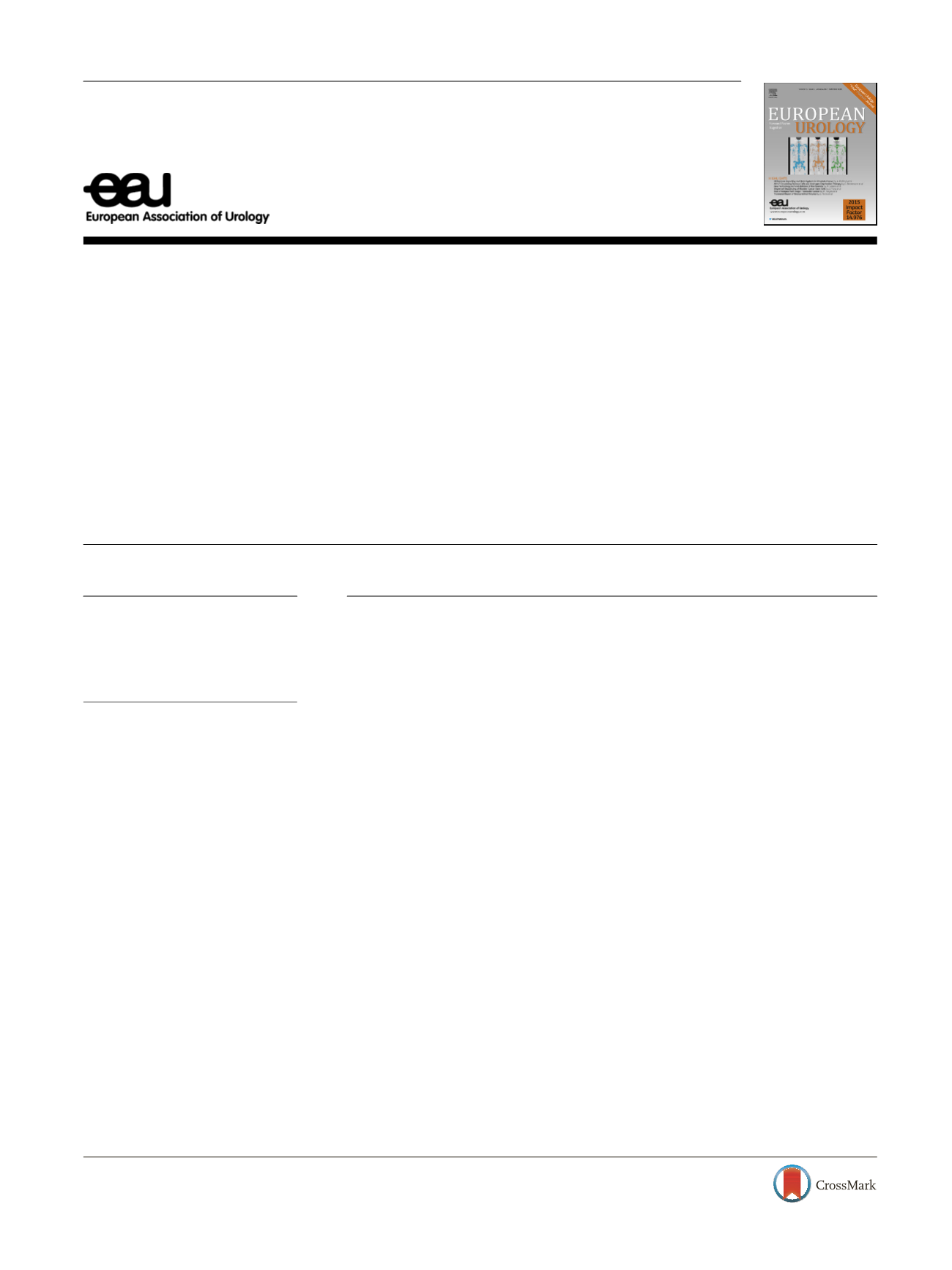

Prostate Cancer
[2_TD$DIFF]
Regular Aspirin Use and the Risk of Lethal Prostate Cancer
in the Physicians’ Health Study
Mary K. Downer
a , b , c , y , * ,Christopher B. Allard
d , e , y, Mark A. Preston
d ,J. Michael Gaziano
a , f ,Meir J. Stampfer
a , b , c , f ,Lorelei A. Mucci
a , c ,Julie L. Batista
a , b , ca
Department of Epidemiology, Harvard T.H. Chan School of Public Health, Boston, MA, USA;
b
Department of Nutrition, Harvard T.H. Chan School of Public
Health, Boston, MA, USA;
c
Channing Division of Network Medicine, Department of Medicine, Brigham and Women’s Hospital and Harvard Medical School,
Boston, MA, USA;
d
Division of Urology, Brigham and Women’s Hospital, Harvard Medical School, Boston, MA, USA;
e
Department of Surgery, Joseph Brant
Memorial Hospital, Burlington, ON, Canada;
f
Division of Preventive Medicine, Department of Medicine, Brigham and Women’s Hospital and Harvard Medical
School, Boston, MA, USA
E U R O P E A N U R O L O G Y 7 2 ( 2 0 1 7 ) 8 2 1 – 8 2 7ava ilable at
www.sciencedirect.comjournal homepage:
www.eu ropeanurology.comArticle info
Article history:
Accepted January 24, 2017
Associate Editor:
Matthew Cooperberg
Keywords:
Aspirin
Lethal prostate cancer
Prostate cancer mortality
Prostate cancer progression
Abstract
Background:
Regular aspirin use probably protects against some malignancies including
prostate cancer (PC), but its impact on lethal PC is particularly unclear.
Objective:
To investigate the association between regular aspirin and (1) the risk of lethal
PC in a large prospective cohort and (2) survival after PC diagnosis.
Design, setting, and participants:
In 1981/82, the Physicians’ Health Study randomized
22 071 healthy male physicians to aspirin,
b
-carotene, both, or placebo. After the trial
ended in 1988, annual questionnaires have obtained data on aspirin use, cancer diagnoses,
and outcomes up to 2009 for the whole cohort, and to 2015 for PC patients.
Outcome measurements and statistical analysis:
We evaluated the relationship between
regular aspirin (
>
3 tablets/week) and lethal PC (metastases or PC death). Cox proportional-
hazards models estimated hazard ratios (HRs) for the risk of lethal PC in the whole cohort
and postdiagnosis survival among men initially diagnosed with nonlethal PC.
Results and limitations:
Risk analysis revealed that 502 men developed lethal PC by
2009. Current and past regular aspirin was associated with a lower risk of lethal PC
(current: HR 0.68, 95% confidence interval [CI] 0.52–0.89; past: HR 0.54, 95% CI 0.40–0.74)
compared to never users. In the survival analysis, 407/3277 men diagnosed with nonlethal
PC developed lethal disease by 2015. Current postdiagnostic aspirin was associated with
lower risks of lethal PC (HR 0.68, 95% CI 0.52–0.90) and overall mortality (HR 0.72, 95% CI
0.61–0.9). We could not assess aspirin dose, and inconsistencies were observed in some
sensitivity analyses.
Conclusions:
Current regular aspirin use was associated with a lower risk of lethal PC
among all participants. Current postdiagnostic use was associated with improved survival
after diagnosis, consistent with a potential inhibitory effect of aspirin on PC progression. A
randomized trial is warranted to confirm or refute these findings.
Patient summary:
We examined the potential effect of regular aspirin use on lethal
prostate cancer. We found that taking aspirin was associated with a lower risk of lethal
prostate cancer, and taking it after diagnosis may help to prevent prostate cancer from
becoming fatal.
#
2017 European Association of Urology. Published by Elsevier B.V. All rights reserved.
y
These authors share joint first authorship.
* Corresponding authors. Channing Division of Network Medicine, Department of Medicine, Brigham
and Women’s Hospital and Harvard Medical School, 181 Longwood Avenue, Boston, MA 02215, USA.
Tel. +1 206 2288067.
E-mail addresses:
mkd690@mail.harvard.edu(M.K. Downer),
stampfer@hsph.harvard.edu(M.J. Stampfer).
http://dx.doi.org/10.1016/j.eururo.2017.01.0440302-2838/
#
2017 European Association of Urology. Published by Elsevier B.V. All rights reserved.
















